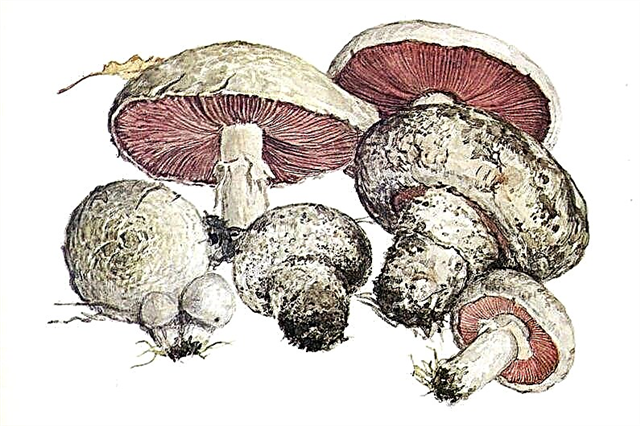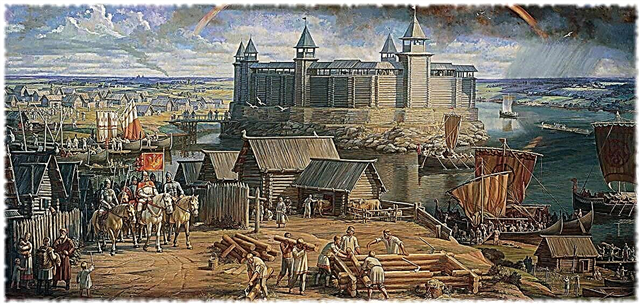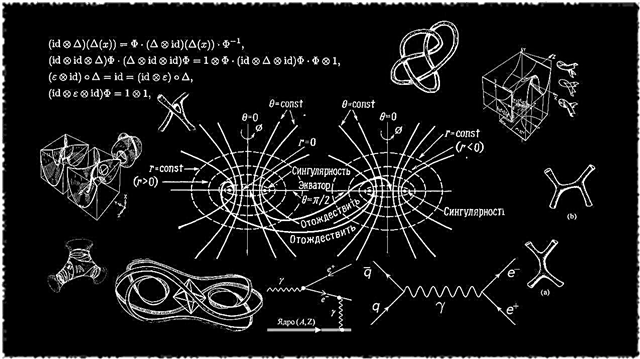
Why is the king in Russia, and the king in Europe? This question arises in childhood, when parents read fairy tales to children. But not everyone was able to get an exhaustive answer to it both in young years and in the future.
Someone simply asserts in the opinion that the crowned persons who head different states are called differently because of the difference in languages. This is partly true. But in order to answer this question fully, you need to look a little deeper. The Russian language is really very different from most European. But why were the words “king” and “king” formed? Today, you can talk about this with all the versions. However, there are not so many versions.
The origin of the word “king”

According to official sources, the word “tsar” began to appear in the Russian language since 917, after the Byzantine army was defeated, and Simeon called himself the Roman and Bulgarian tsar. This word did not appear at all spontaneously, at its core - the Roman concept of “Caesar”, “Caesar”, meaning the title of ruler. It came on behalf of Gaius Julius Caesar, whose merits were recognized so much that further emperors sought to mention him in the title, making him an official appeal.
Interesting fact: Gaius Julius Caesar did not want to be king and bear the title “Rex” (the Latin word for king in Ancient Rome), he strove for democracy, and the kings were overthrown here 500 years ago.But it turned out that the name “Rex” hated by the Romans was replaced by “Caesar,” and so all subsequent rulers called themselves, hinting at their unity with Guy Julius, partaking of his accomplishments.
In Russia, Ivan the Terrible became the first Caesar, that is, the Tsar in 1547; he was named so by virtue of the inheritance of the traditions of the Byzantine Empire, from which Orthodoxy came to Russia. Byzantium is the heiress of the Eastern Roman Empire.
There is another version put forward by the Proto-Slavic linguists - they indicate that the word “king” comes from “tse yar”, literally - “this is light”. Since there is no solid evidence in favor of this theory, it is worth mentioning.
Before Ivan the Terrible, the ruling persons were called princes, grand dukes. This word comes from the pan-European “knight”, “knechte”, denoting a representative of the second estate.
How was the word king formed?

The word “king” can be considered consonant with the aforementioned “bollard” and another, but it is generally accepted that it has a different origin. Most experts believe that this word also came from the name, and it dates back to the time of Charlemagne, whose descendants and followers also wanted to retain the title and power of the great monarch, who ruled the territories from the Pyrenees to the Danube in the 9th century. It would seem that everything is obvious, but here there is an interesting paradox. So, despite the agreement of many experts regarding this very origin of the word “king”, it should be noted that it exists only in Slavic languages.
In the Latin group it is replaced by the word “rex”, the French have the word “swarm”, and so on. The Western Slavs called the kings of foreign and their own ruling persons, and in the more eastern lands only the European ruling elite was called so. In this case, logic itself prompts you to start searching for Slavic roots that could form this word for one reason or another.
Some linguists completely agree with this, and even point to the word that could form the title. In Slavic languages there is a word to punish, perhaps it was from him that the formation of this title went.
Where did the word “emperor” come from?

Great rulers called themselves emperors, and their possessions - an empire. This has been the case since Roman times, the first emperor was Augustus Octavian, who came to power after the tragic assassination of Caesar. After the Roman dynasties, Charlemagne revived this status, and then Peter the Great. Today, the Japanese rulers call themselves emperors, there are no other such in the world. The Roman-European understanding of this word is associated with the status of a commander; the title can also be translated as “ruler”.
Thus, in the world there are many words that indicate the special authority of a person. In Russia, the ruling monarchs were called tsars from the Roman concept of “Caesar,” in Europe there were own words indicating that a person has exclusive powers - “rex”, “swarm”, and so on. The word “Kaiser” is also raised to the name of Caesar.However, the concept of “king” stands apart, because in the European languages themselves it is not. Probably, it has a Slavic root, is derived from the word “punish” and denotes a person with special powers who has the right to punish and pardon.












